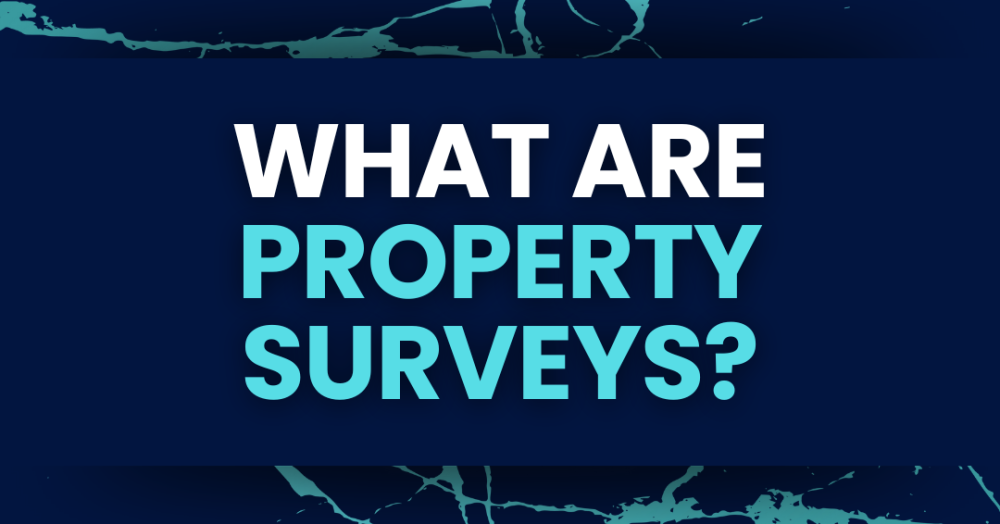Whether you're a first-time buyer or a seasoned mover, understanding the types, costs, and benefits of property surveys can save you from expensive surprises down the line.
What Is a Property Survey?
A property survey is an expert inspection of a home’s condition, usually carried out after your offer has been accepted. It identifies structural issues, repairs needed, and potential future maintenance concerns. It gives buyers peace of mind—or bargaining power—before contracts are exchanged.
Important Note: A property survey is not the same as a mortgage valuation. The valuation is for the lender’s benefit and simply ensures the property is worth the amount they’re lending. A survey, however, is for your protection.
Why Are Property Surveys Important?
- Spot Structural Problems Early: From damp and subsidence to roof issues, surveys highlight costly defects.
- Negotiation Tool: If the survey uncovers problems, you may renegotiate the price or ask the seller to carry out repairs.
- Budget Planning: Helps estimate future maintenance costs.
- Peace of Mind: You’ll move into your new home with a clearer understanding of its condition.
Types of Property Surveys in the UK
There are several types of property surveys, each offering different levels of detail. Choosing the right one depends on the property's age, condition, and your concerns.
1. RICS Level 1 Survey (Condition Report)
- Best for: New-builds or modern homes in good condition.
- Includes: A general overview of the property’s condition, traffic-light ratings for different areas, and any major risks.
- Limitations: Doesn’t include advice or a detailed analysis.
Cost: ~£250–£400
2. RICS Level 2 Survey (HomeBuyer Report)
- Best for: Standard homes in reasonable condition built after 1900.
- Includes: Surface-level inspection of major elements (roof, walls, windows), advice on repairs, and legal issues to check.
- Can include a valuation for an extra fee.
Cost: ~£400–£700
3. RICS Level 3 Survey (Building Survey / Full Structural Survey)
- Best for: Older, unusual, or visibly run-down properties.
- Includes: In-depth inspection, structural integrity, advice on repairs, and maintenance suggestions.
- Highly detailed—sometimes over 30 pages.
Cost: £600–£1,500+
Specialist Surveys You Might Also Consider
Depending on the initial findings or concerns, you may need additional checks:
- Damp and Timber Survey
- Roof Survey
- Drainage Survey
- Asbestos Survey
- Electrical and Gas Inspections
These can often be arranged separately or through your surveyor for an extra fee.
When Should You Get a Survey?
- After Offer Acceptance: Surveys are typically ordered once your offer has been accepted but before contracts are exchanged.
- Before Legal Commitment: Don’t skip this step—it gives you the legal and financial breathing room to withdraw or renegotiate if needed.
What If the Survey Finds Problems?
Don’t panic—most properties have some defects, especially older ones. If serious issues are found:
- Renegotiate the Price: Use the findings to justify a lower offer.
- Request Repairs: Ask the seller to fix key problems before completion.
- Walk Away: In extreme cases, you may decide the property is not worth the risk.
Do You Have to Get a Property Survey?
No, but it’s highly recommended, especially with older or non-standard construction homes. The cost of a survey is small compared to what you might spend on unexpected repairs later.
Choosing a Surveyor
Look for a surveyor who is:
- RICS-Registered: (Royal Institution of Chartered Surveyors)
- Local: They’ll understand regional construction quirks.
- Experienced with Your Property Type
Final Thoughts
A property survey is not just a box to tick—it's a vital safeguard in your home-buying journey. It protects your investment, helps you plan financially, and can save you thousands in the long run. First time buyer? let us help you navigate through each step of the way. Give us a call on 0121 681 6327.
